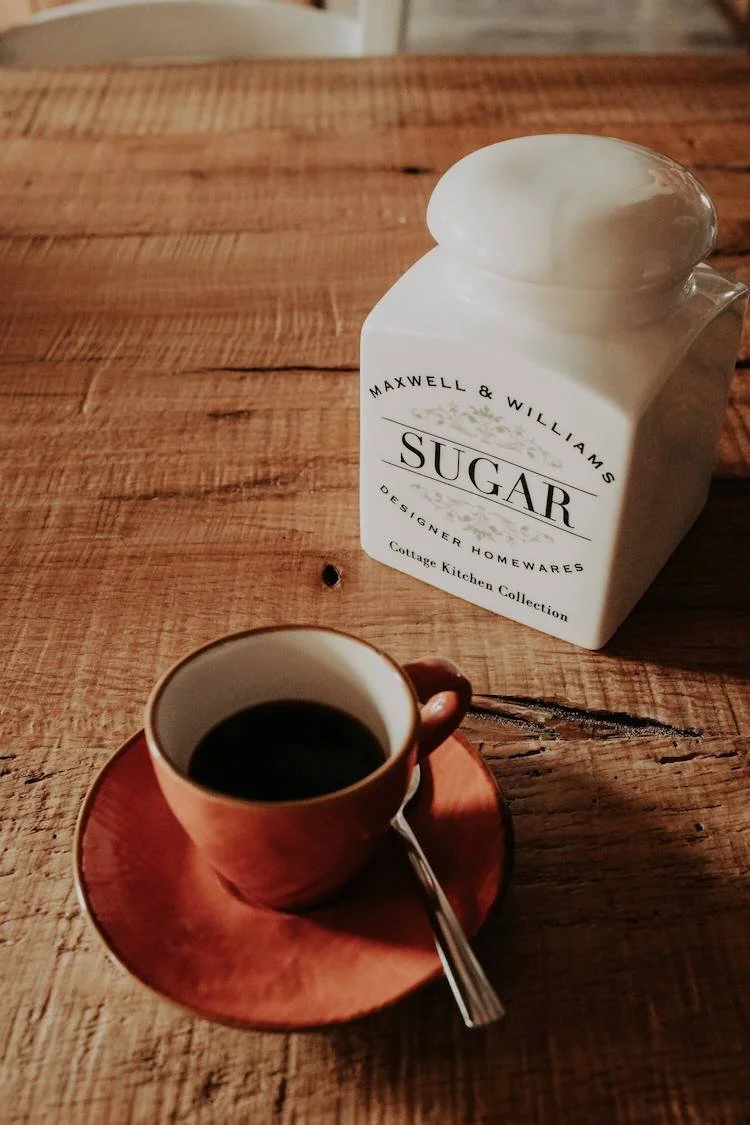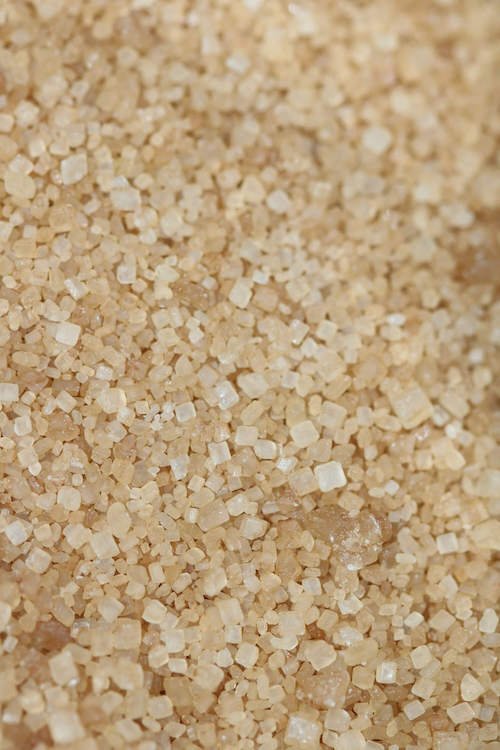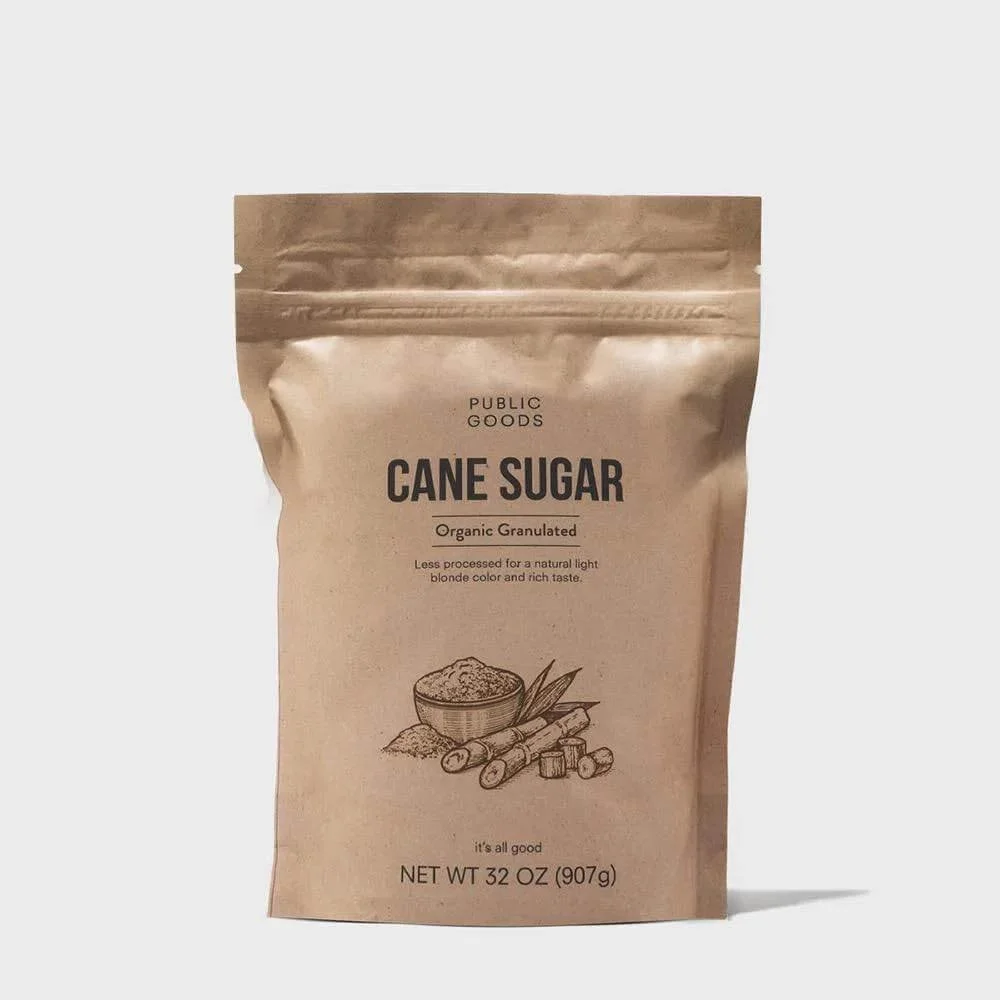Organic Cane Sugar vs. White Sugar: What's the Difference?
Whether adding it to your morning coffee, stirring it into a batch of muffins, or using it to preserve jams, sugar is a staple in many a pantry.
However, it has a bad reputation not only due to its various health impacts but also because of its omnipresence in our diets.
Added sugar is found in the usual suspects – like beverages, ice cream, pastries, and cookies – but is also present in everyday items like bread, yogurt, and cereal.
And it even lurks in unsuspecting places like snack bars, low fat foods, and fruit juices – foods often touted as healthy.
The World Health Organizations (WHO) recommends a daily intake of less than 10% of our total energy intake. Reducing that to below 5% per day (6 teaspoons or 25 grams) would provide additional health benefits.
The American Heart Association suggests 9 teaspoons (36 grams) of added sugar per day for men and 6 teaspoons (25 grams) for women.
Currently, the average American consume three times the amount recommended for women.
It can be easy to surpass the recommended sugar intake amount since American's normal habits can include drinking soft drinks, eating snacks with high fructose corn syrup, or putting those artificial sweeteners in your coffee.
Other sugar substitutes we see include agave syrup, broth sugar, coconut sugar, simple syrup, and natural sweeteners.
Truth is sugar consumption shows up in a lot of different aspects of our American diet.
In an effort to be healthier, consumers may seek an alternative. Sometimes organic cane sugar is marketed as a healthier choice.
But what exactly is the difference compared to conventional white sugar, and is it actually better?
Let's explore the different types of sugar and learn some of the distinct differences in organic cane sugar and regular white sugar.
What is Organic Cane Sugar?
Organic cane sugar is unrefined sugar made from organically grown sugar cane. Its processing involves washing the sugar cane which is then chopped and crushed to extract the juice.
This juice is boiled and spun in a centrifuge and dried to form crystals.
The result is a less processed sugar that feels grainier, has a lighter color, and a slightly different taste.
How is Conventional White Sugar Different from Organic Cane Sugar?
Conventional white sugar is also made with sugar cane, but has been through a refining process.
Further steps in the production method involve the addition of calcium hydroxide and carbon dioxide and filtering it through bone char or natural charcoal to remove impurities and whiten the granules.
When bone char is used, the result is not suitable for vegans. However, most conventional white sugar in the United States is made from sugar beets, not sugar cane.
When made from sugar beets, bone char is not used, making it vegan friendly. While the two taste slightly different, nutritionally they are very similar.
But what of the difference between conventional white sugar and organic cane sugar, besides production methods?
Nutritionally, they’re not that different either.
They have an identical chemical composition, are both made of sucrose, and create the same response in the body.
Whichever you choose, both should be used in moderation due to the many health implications associated with overconsuming added sugar.
Health Impacts of Sugar
Sugar has its perks. Literally! It can give you a quick energy boost and elevate your mood. As mentioned, it is with its overconsumption that we need to be wary.
The high intake of sugar can increase the risk of type 2 diabetes, obesity, and cardiovascular diseases, as well as a number of other health impacts including tooth decay, kidney and liver problems, depression, and cancer.
Is Organic Cane Sugar Healthier?
Organic cane sugar may be marketed as healthier because, since it is less processed, it retains more nutrients.
Unrefined organic cane sugar contains 17 amino acids, 11 minerals, and 6 vitamins.
However, these amounts are so small that they do not provide much benefit.
They are certainly not a substitute for raw fruit and vegetables which contain natural sugars and are packed with vitamins, minerals, fibers, and antioxidants.
And, conversely, getting your sugar dose from the natural sugars found in whole foods such as fruit and vegetables may lower the risk of diabetes and heart disease.
The verdict?
Nutritionally, organic cane sugar is not a whole lot better for your health and, to reiterate, should still be consumed in moderation.
If there are benefits, they are to be found in the practice of growing organic sugar cane and implementing organic production methods.
However, organic sugar is less processed and a bit more sustainable than conventional sugar.
Environmental Impacts of Organic Cane Sugar
Growing sugar cane organically means it is made with fewer or no pesticides and synthetic fertilizers.
This practice helps keep toxic chemicals out of soil, air, and water, as well as off the crops, making for a safer final product and protecting those who have to work in the fields and handle the crops.
Reducing toxic chemicals also helps protect and support healthy bee populations.
Toxic insecticides, herbicides, and fungicides pose one of the greatest threats to bees.
These buzzing little creatures are crucial to human and environmental health.
They produce honey and beeswax, which are used in medicinal as well as beauty products. And honey is a great natural sweetener.
Additionally, bees (as well as other insects like butterflies) are vital as pollinators, moving pollen between plants and fertilizing them so they can produce fruits, vegetables, and seeds.
Without bees and butterflies, the ecosystem would become unbalanced and the world’s food supply greatly affected.
Other farming methods that are implemented in organic practices include crop rotation, allowing the soil to replenish its nutrients.
Planting cover crops also increases soil quality as it helps to store nutrients and prevents nutrient runoff.
If you want your sugar non-GMO, you’re best off choosing organic cane sugar because organic farming methods preclude the use of genetic engineering.
Furthermore, since most conventional white sugar in the US is made from sugar beets you’d be hard put to find white sugar that is non-GMO since about 95% of sugar beets in the States are genetically modified.
3 Organic Cane Sugar Brands to Try
If you’re looking for a non-GMO sugar option that is less processed here are some organic cane sugar brands that I have tried!
This post does contain affiliate links. The Honest Consumer will receive a commission if you decide to make a purchase. Our commission is at no additional cost to you.
Wholesome’s Fair Trade Organic Cane Sugar
Price Range: $7-$50
Specializing in organic and fair trade sweeteners, Wholesome’s products are free from chemicals and artificial ingredients.
Their offerings include coconut palm sugar, molasses, agave, brown sugar, and of course cane sugar. Their organic cane sugar is Fair Trade Certified.
As a conscious consumer, this is the brand I purchase when shopping at my local grocery store!
Grown without chemicals, herbicides, pesticides, or synthetic fertilizers, the sugar cane is hand-harvested and minimally processed.
It is also USDA organic certified, gluten-free, vegan-friendly, non-GMO, and kosher.
Good & Gather’s Organic Cane Sugar from Target
Price Range: $3-$7
Available exclusively from Target, Good & Gather is a food and beverage brand that offers everything from dairy and produce to pasta, meat, and plant-based alternatives.
Their organic cane sugar is good for baking and as a sweetener.
It is kosher, non-GMO, USDA Organic certified and comes in a resealable bag that is fully recyclable in-store.
Public Goods Affordable Organic Cane Sugar
Price: $5-$10
Made in Brazil and packed in Kentucky, Public Goods’ organic cane sugar is ideal for baking, sweetening beverages, and even as a preservative for cut flowers.
Free of additives and preservatives, it is also kosher and non-GMO.
Hopefully this guide helped you learn some of the differences between organic cane sugar and white granulated sugar, so you can make the best choice for your family next time you're at the grocery store or ordering groceries online.
More Organic Food Guides to Read:
MEET THE AUTHOR
Claudia Hauter is a South African writer, copy editor, and content creator with degrees in Drama and Anthropology. She works in television managing web content. When she isn’t reading or writing, she’s walking her dog, finding small businesses and markets to support, or attracting butterflies and bees with her vegetable garden. Learn from Claudia on Twitter or Instagram.
For more tips & tricks on sustainable living be sure to follow The Honest Consumer on social media, subscribe to our newsletter, & check out the Ethical & Sustainable Brand Directory.












